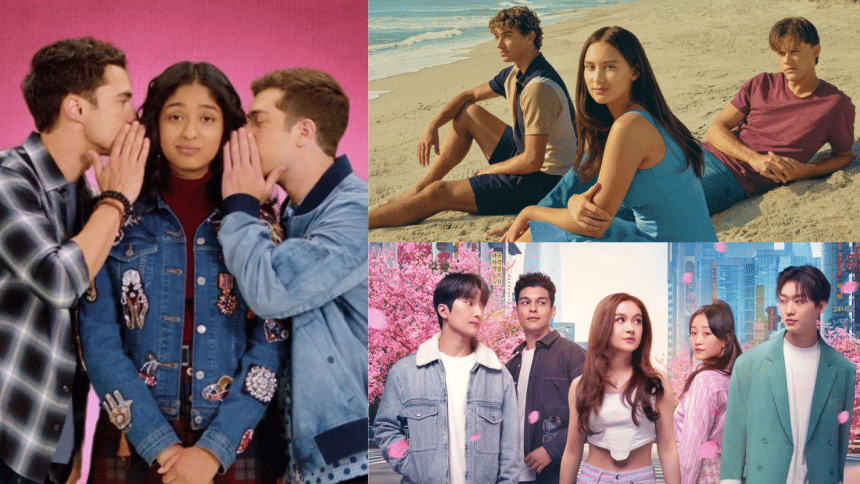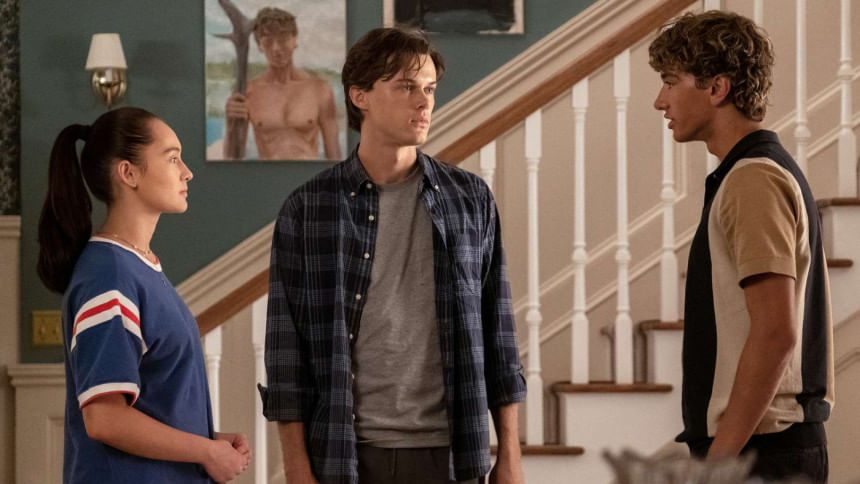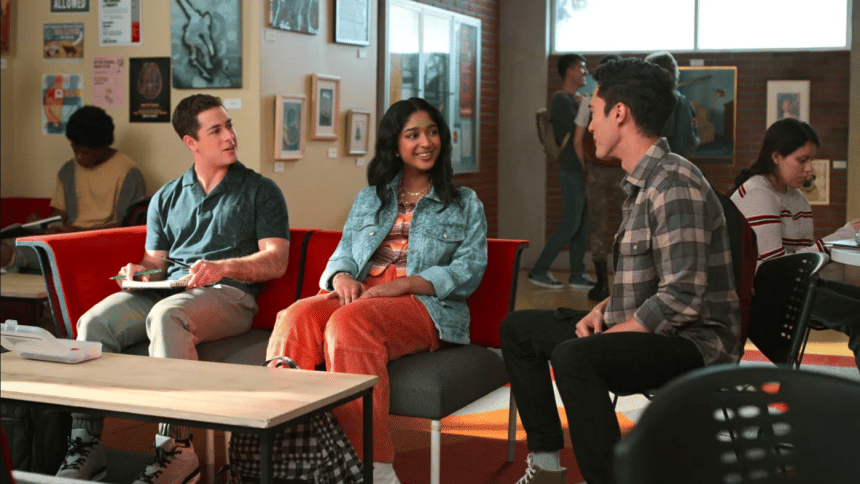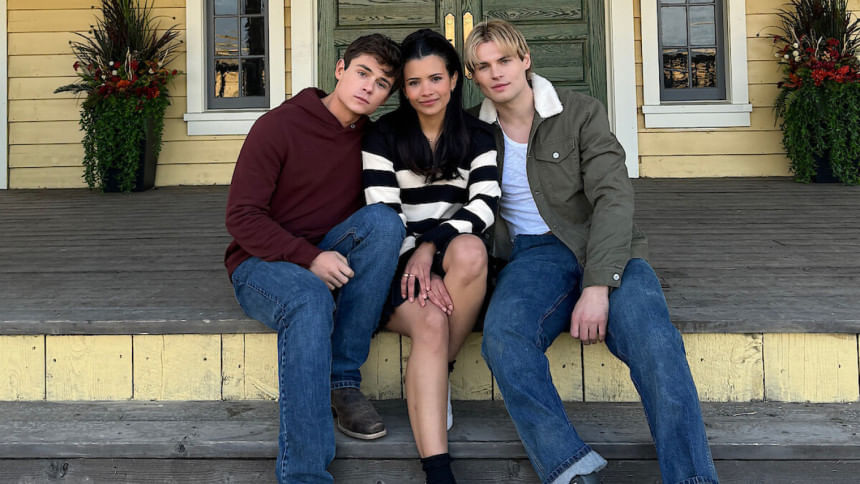The summers we obsessed over teen love triangles

This summer, we, the netizens, turned Instagram into a courtroom to decide whether Belly should pick Conrad or Jeremiah. My feed, once a respectable mix of vacation reels, fit checks, work memes, and unsolicited life advice from people who barely graduated high school, has turned into a teenage courtroom where strangers plead their case for fictional love triangles. We type furiously about the fate of a girl whose biggest problem is which handsome boy gets to stand in the rain with her, and read captions declaring loyalty to a boy who exists only in Prime Video's servers. It feels as if the world pressed pause on adulthood and collectively moved into a beach house where heartbreak is cinematic, summers are eternal, and every decision feels like a new episode. And we—fully grown, allegedly serious and busy people—are here for it.
This indeed is the era where teen romance shows have mastered the ancient art of hijacking the internet, and "The Summer I Turned Pretty" is the current reigning monarch. Before that, we watched "Never Have I Ever" turn the internet into a Ben-versus-Paxton battlefield, and "XO, Kitty" made sure Seoul was less about culture and more about who kissed whom on a bridge. Netflix tossed in "My Life with the Walter Boys" just to ensure every algorithm stayed fully caffeinated. And through it all, millions lined up like superfans to pick sides, debate, and defend the romantic choices of fictional teens. There is a sweetness to this cultural moment, almost nostalgic. Teen romance shows are our emotional fast food; quick, predictable, occasionally messy, but exactly what you need when life has been serving nothing but diet salad. They remind us of a time when everything was dramatic because it was the first time, when a look could feel like a contract and a kiss could feel like a revolution.

Yes, it is a little ridiculous. There is a delicious absurdity in a 30-year-old DMing their group chat about why Jeremiah deserves a redemption arc. But unlike most online arguments, these are tender wars; no one loses a friendship over who Kitty kisses, no one cancels brunch because Paxton did not make it. We fight, we swoon, we make playlists, and then we go back to our bills. The world outside may feel like an unpaid internship in chaos, but inside these love triangles, we get something the real one rarely offers: closure. Perhaps that is why these shows own the summers. They are perfectly timed escapes; long enough to binge, light enough to carry, dramatic enough to make us feel, but never enough to break us.
However, beneath the soft-focus cinematography and Pinterest-worthy dialogue lies a more cynical calculation: does teen romance sell because it creates teams? Not narratives, not arcs, primarily teams — Team Conrad. Team Jeremiah. Team Min Ho. Team Dae. Team Paxton. Team Ben. It does not matter who wins; what matters is that you picked a side and you posted about it. The platforms know it, the studios know it, and the marketing departments know it best. A divided internet is an engaged internet, and nothing divides quite like fictional love triangles where no one ever considers therapy. Yet, we pick a side, or pick both, or switch halfway through because character growth is a thing. We post memes. Text "cannot believe she chose him" to someone we have not spoken to in months. In a world where so much feels designed to divide us harshly, there is something almost wholesome about being divided gently, playfully, over sun-kissed high schoolers who somehow have more emotionally literate conversations than most adults do.

This is not to say the shows are inherently bad. "Never Have I Ever" had its charm; it was funny, fast, and occasionally self-aware enough to wink at the ridiculousness of its own setup. "XO, Kitty" was a bubblegum postcard of a teenage girl in Seoul, sugary enough to rot your teeth but sincere in its attempt to show a girl finding her place. Even "My Life with the Walter Boys", a series whose emotional stakes rise and fall with the subtlety of a caffeine crash, manufactured a conversation you did not realise you had signed up for. Maybe that is the real trick here. These shows have cracked the code to making every viewer feel like a participant. Because you are not just watching a show; you are entering a sprawling, neon-lit food court where the main item on the menu is opinion. You campaign. You write threads. You slide into DMs to explain why your side is morally superior.
This summer, the obsession became a cultural scavenger hunt for relevance. Celebrities joined in, sports teams threw their weight behind fictional characters as if playoff hopes depended on Belly's final rose ceremony. Influencers built content calendars around which brother made her cry harder. Suddenly, teen drama was not just something you watched in secret but a personality trait. The problem is not that we watch. We have always watched. The problem is that we watch like zealots, as if a character's decision to kiss one boy under a string of fairy lights is a referendum on the human condition. We project our own youth onto these characters, and in doing so, we give them a cultural weight they were never designed to carry. Meanwhile, this fixation keeps feeding a particular industry: the production line of youth romance that thrives on our arrested development.

This obsession is definitely harmless, a bit of fluff in a world too sharp-edged. But ultimately, fandom wars become micro-tribes, micro-tribes become algorithms, and algorithms become culture. And somewhere along the way, the summer you were meant to finally pick up a hobby or read that one book gathering dust became the summer you learned to hashtag fictional heartache. Will we grow out of it, though? Probably not. The pipeline is too efficient, the dopamine hit too cheap. And the creators know exactly what they are doing. Each season is crafted like a campfire; the lighting is warm, the soundtrack perfectly aching, the cliffhangers calibrated to make us tweet at midnight. They give us a place to gather, to project, to relive the sweetness of almosts and firsts without the acne or the curfews. It is less about whether Belly ends up with Conrad or Jeremiah and more about how, for a few weeks, we all got to remember what it felt like to be chosen, to hope, to ache over something that was not a bill or a headline.
Will it happen again next summer? Absolutely. Another porch, another triangle, another season of carefully tousled hair and metaphorical sunsets. And we will watch, again, not because we cannot tell fiction from life, but because it reminds us how sweet it is to believe in the possibility of something uncomplicatedly romantic, even for a few streaming hours. So yes, this was the summer we obsessed over teen love triangles. And honestly? May there be many more – a collective wink at our own seriousness, a reminder that even grown-ups deserve to crush a little.

 For all latest news, follow The Daily Star's Google News channel.
For all latest news, follow The Daily Star's Google News channel. 




Comments